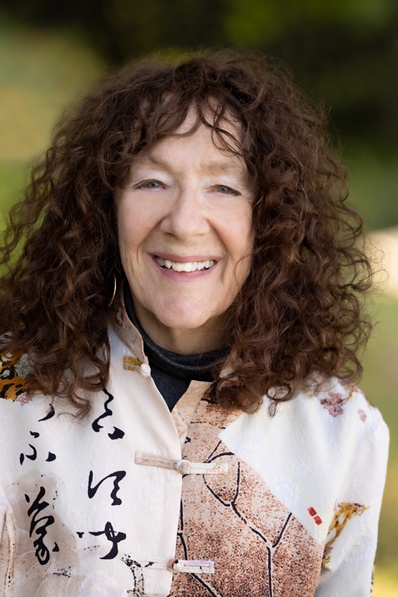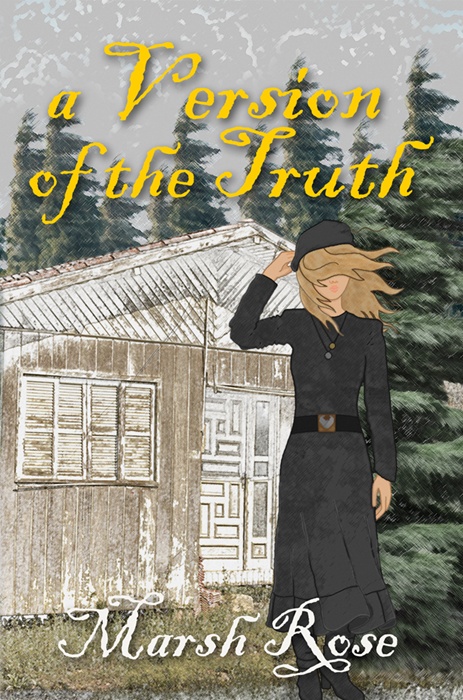I think it’s not possible for us to professionally edit our own writing. It’s something like a doctor not treating her own family member: we’re going to be biased.
Marsh Rose – 30 October 2025
The Back Flap
Over forty years, Marsh and her partner built a life defined by love, devotion, and independence. He supported her when she bought her home in California wine country, when she grieved the deaths of her parents, when she built her career as a psychotherapist, and even when she overcame a lifelong fear of dogs to adopt a rescued greyhound.
They never married or shared a home—by choice. They were lovers and confidants, deeply committed to one another. Yet, they only met on Tuesdays and Fridays.
And then, one day, he vanished.
When Marsh finally tracked him down, she discovered the unimaginable: he had suffered a catastrophic stroke. His memory was gone. He could no longer speak. And he was living with a woman who knew him by a different name.
What was the truth? With him unreachable behind the devastation of his illness, and with the danger that exposing their relationship could cause irreparable harm, Marsh was left to confront a hall of mirrors—plagued by questions, silences, and uncertainty.
In the end, she discovered a universal reality: we all live with some unknowable mystery. The question is—do we spend our lives searching in vain for an answer, or do we find a version of the truth we can live with, and live with it?
About the book
What is the book about?
A Version Of the Truth is a memoir about a 40-year-long relationship, its impact on the course of my life, and a challenge that addresses a universal truth: We don’t always get the answers we need, so how do we live with our unsolvable mysteries?
When did you start writing the book?
It began three years ago as an essay I hoped to submit to the “Modern Love” column in the New York Times, about caring for a significant other with health problems. I was about two weeks away from submitting it when my partner had a stroke and then…the end of the book happened. The Times article was irrelevant in that new light, so I never submitted it as an essay and began writing it as a book-length memoir instead, with a very different angle and message.
How long did it take you to write it?
I’d still be writing it now, but I enrolled in a master class with my mentor/editor, Marion Roach Smith (The Memoir Project), who was helping me with that essay from the start, so it was a natural segue. The class was six months long and I felt finished at the end.
Where did you get the idea from?
It made itself known from experience.
Were there any parts of the book where you struggled?
Yes, making sure I had protected the privacy of the people involved.
What came easily?
I love this question because I get to talk about one of my favorite “characters.” It’s an old house. In the late 1990s I had read an interview with novelist Anita Shreve who disclosed that in every book she wrote, she includes an elegant old convent on the coast of Maine. At the time, I was living in the most decrepit shack, a rental that I couldn’t afford to leave. At $300 a month for a three-bedroom in the northern California wine country, who would leave such good fortune? But it was falling apart, the antithesis of elegance. I was working on a novel at the time, remembered Anita Shreve and, as just a private joke with myself, thought…well, if folks want to read about an old house, have I got an old house for them! I started including that shack in nearly everything I wrote, and it almost always brought me good luck.
Are your characters entirely fictitious or have you borrowed from real world people you know?
A Version Of the Truth is a memoir, and the characters are real people. I’ve changed their names, and the names of the locations.
We all know how important it is for writers to read. Are there any particular authors that have influenced how you write and, if so, how have they influenced you?
I always feel that I should say something erudite and sophisticated (“why yes, I have memorized War And Peace….”) but it’s the British naturalist Gerald Durrell (brother of author Lawrence Durrell, who actually is erudite and sophisticated), whom I started reading when I was 13 years old. He taught me how to present characters in the context of a short story. And the novel A Confederacy Of Dunces. The novel itself merited a Pulitzer, and the introduction by writer Walker Percy taught me the importance of presenting diverse characters with dignity and humility. And then there’s Naked, Drunk and Writing by author Adair Lara, my first mentor, and The Memoir Project by Marion Roach Smith whose voice is always in my head (and on goods days speaks from my pages).
Do you have a target reader?
I believe the book speaks to the emerging population of readers who want stories of strong women in compelling situations.
About Writing
Do you have a writing process? If so can you please describe it?
I write off and on throughout the day and my word processor is my steady companion.
Do you outline? If so, do you do so extensively or just chapter headings and a couple of sentences?
Every writing coach and editor and professor I’ve ever met directs me to outline. And I try so hard to be good, honest I do. But typically, the material goes galloping off in its own direction and I often find myself distilling the outline from the pile of freewriting.
Do you edit as you go or wait until you’ve finished?
That question would be met with hoots of derision from my editors. I can’t stop editing. One of my editors accused me of “stomping the life” out of my writing and reminded me, “they won’t publish it if you won’t send it to them.” It’s so hard to know when I’m finished and it’s time to let it go, and apparently “never” is not a good answer.
Did you hire a professional editor?
I self-published a novel in 2013 and hired an editor. I think it’s not possible for us to professionally edit our own writing. It’s something like a doctor not treating her own family member: we’re going to be biased. Anyway, I would be.
Do you listen to music while you write? If yes, what gets the fingers tapping?
I couldn’t listen to music even when I was doing homework in school. It’s the curse of the easily-distracted. One appeal to my attention at a time.
About Publishing
Did you submit your work to Agents?
Never did. Well, once, with my first novel, but it didn’t work out and I self-published. I have a publicist, Books Forward, this time. Best investment ever.
What made you decide to go Indie, whether self-publishing or with an indie publisher?
My publisher, Sunbury Press, doesn’t seem to fit the criteria of an indie, but I know authors who have worked with indie publishers or have self-published with great success.
Did you get your book cover professionally done or did you do it yourself?
Sunbury has cover artists, but they asked me for my ideas and incorporated them. With the novel before this memoir, I had a photo and the publisher used it. With the self-published novel, I found an image on the internet that I wanted to use and learned how to get permission. But it was in 2013 so things have probably changed.
Do you have a marketing plan for the book or are you just winging it?
My marketing plan, such as it is, based on past experience is this: I can’t do it myself, I need professionals, I’m publicity shy and inexperienced, social media terrifies me, and the realms of marketing and promotion are no places for amateurs.
Any advice that you would like to give to other newbies considering becoming Indie authors?
Well, for the book I did self-publish, I learned to trust my intuition. I was given some advice that my gut knew was wrong and it took me over a decade to go back, rewrite it my way, and it got published in 2021.
End of Interview:
Get your copy of A Version of the Truth from Amazon US or Amazon UK.


